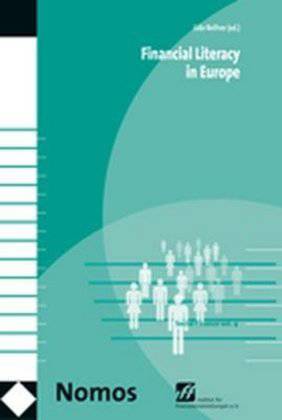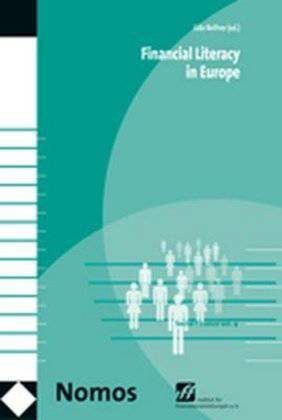
- Afhalen na 1 uur in een winkel met voorraad
- Gratis thuislevering in België vanaf € 30
- Ruim aanbod met 7 miljoen producten
- Afhalen na 1 uur in een winkel met voorraad
- Gratis thuislevering in België vanaf € 30
- Ruim aanbod met 7 miljoen producten
Zoeken
Financial Literacy in Europe
€ 39,45
+ 78 punten
Omschrijving
Financial Education or Financial Literacy is of major concern to all developed countries. The OECD, World Bank and the EU Commission have taken the first initiatives to further this kind of education alongside similar efforts by national governments. The rising use of financial services to finance living, education and homes, to care for old age through private pension schemes, to transfer and receive money from far away places, and to insure the rising risks in everyday life, all put consumers into the difficult position of having to take decisions under uncertain conditions, by using highly sophisticated and complex products and services, offered to them by all kinds of providers who are acting in their own economic interest. This creates new risks and distortions in the market.
The present report written by scientists from the UK, Germany, France, Belgium and Italy try to give an initial overview of what could truly be called "financial education" in these countries. Its approach is distinct from efforts in professional education, economics or marketing aimed at informing the public about financial matters. It takes the perspective of consumers, individuals who want to optimise the value of their income and target their expenditures in order to gain personal welfare through the use of financial services, while preventing over-indebtedness and the loss of income which can result from inadequate products or inadequate use of them.
The present report written by scientists from the UK, Germany, France, Belgium and Italy try to give an initial overview of what could truly be called "financial education" in these countries. Its approach is distinct from efforts in professional education, economics or marketing aimed at informing the public about financial matters. It takes the perspective of consumers, individuals who want to optimise the value of their income and target their expenditures in order to gain personal welfare through the use of financial services, while preventing over-indebtedness and the loss of income which can result from inadequate products or inadequate use of them.
Specificaties
Betrokkenen
- Uitgeverij:
Inhoud
- Aantal bladzijden:
- 255
- Taal:
- Engels
- Reeks:
- Reeksnummer:
- nr. 9
Eigenschappen
- Productcode (EAN):
- 9783832920395
- Uitvoering:
- Paperback
- Afmetingen:
- 178 mm x 234 mm
- Gewicht:
- 394 g

Alleen bij Standaard Boekhandel
+ 78 punten op je klantenkaart van Standaard Boekhandel
Beoordelingen
We publiceren alleen reviews die voldoen aan de voorwaarden voor reviews. Bekijk onze voorwaarden voor reviews.










